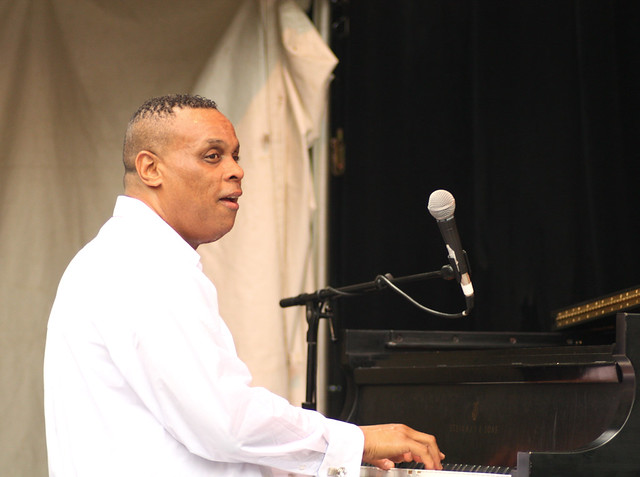 |
| Photo by Brian Callahan (Luxgnos.com) |
That is unheard of. Yet, many piano players lack the ability to improvise on the piano! This is caused by years of rigid piano lesson/structure and a lack of proper guidance.
Many piano players rely on sheet music to be able to play, which would be like an artist only copying another’s artwork and never creating something unique. Improvisation is a fun process. It enables the pianist to bring out the latent potential of creativity and expression inside them.
One thing that will help any piano player to improve on the art of improvisation is to allow unstructured creative time during one's piano practice hours.
Time to just sit down and make up music on the piano is crucial. No agenda, no structure, no goals to accomplish. This process is extremely important in the world of piano playing.
In order to allow the inner expression to come out, one needs to let it reveal itself. A good example of this is how young children play the piano. If you can observe a child learning the piano do so. Very often, young children are able to reach a creative and fun play "scheme" without any guidance at all. Similarly, any piano player should allow 15-30 minutes of "free play" without worrying about hitting the wrong notes.
Traditional piano lessons emphasize the ability to read notes. Reading ability is no doubt one of the most important skills any piano player can possess. This emphasis, however, has created some "lopsided" players who can only play piano by reading. Eventually, this type of player will lose their interest and passion for music.
Many young children drop out of piano lessons as a result of struggling with music reading. Children who are younger than 5 or 6 are discouraged from traditional piano lessons due to the fact that they cannot yet read musical notes properly.
Music is commonly referred to as a "language." There are many ways of learning a language. Young children master the language skill by frequently talking and interacting with their peers and caretakers as well as imitating other people. The ability to read comes a little later in their life. A similar approach needs to be taken to foster the love of piano music among young children. Sometimes by just allowing young children to make up music on the piano without placing emphasis on playing the correct notes can be just as important.
